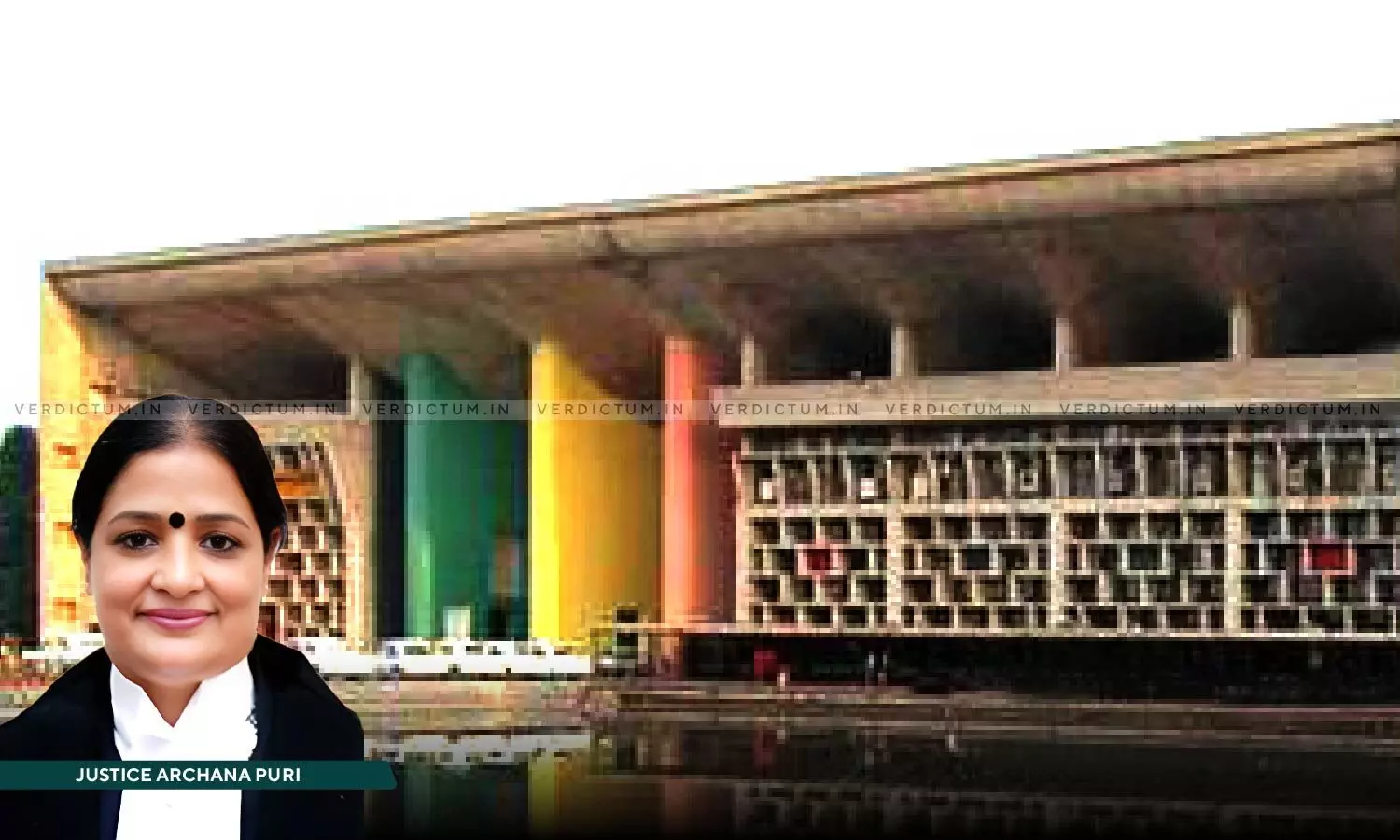
Justice Archana Puri, Punjab and Haryana High Court
Child Has Right To Know His Parentage: Punjab and Haryana High Court Upholds DNA Test Order
 |
|The Punjab and Haryana High Court was considering a revision petition challenging an order passed by the trial Court directing that a DNA test of the petitioner-defendant be conducted.
While upholding a Trial Court order directing a DNA Test to be conducted, the Punjab and Haryana High Court has observed that the child has a right to know his parentage in the context of the denial of relationship by the man who is claimed to be the father.
The High Court was considering a revision petition challenging an order passed by the trial Court allowing an application filed by the respondent-plaintiff and ordering the conduct of a DNA test of the petitioner-defendant.
The Single Bench of Justice Archana Puri stated, “Considering the same, at this stage, ‘balancing of the interest’ and the ‘eminent need’ has to be looked into. The child, as a plaintiff, has a right to know his parentage in the context of denial of relationship by defendant No.1, in one of the rounds of litigation of defendant No.1 with defendant No.2. Justice to this child/plaintiff, is a factor, not to be ignored. Rather, his assertion demands that truth be known, when truth has to be established, as it undoubtedly can.”
Advocate Akshay Jindal represented the Petitioner, while Advocate Nandan Jindal represented the Respondent.
Factual Background
The plaintiff filed a suit for declaration, asserting himself to be the son of the first and second defendants. He had filed a petition under Section 125 Cr.P.C., through his mother, as he was a minor at that time. In the written statement/reply filed to the same, the first defendant denied the parentage of the plaintiff and stated therein that the plaintiff was not his biological son. It was also averred in the plaint that the first defendant came into contact with the second defendant, i.e. mother of the plaintiff, in the year 1988, as he took the accommodation in her house of defendant as a tenant. They started living as husband and wife, and from their wedlock, the plaintiff was born in the year 1990.
It was averred that the plaintiff is the real son of the first defendant, but the defendant is running from his liability/duty. An application under Section 75(e) and Order 26 Rule 10-A CPC was made for the issuance of a direction to the first defendant to get his DNA test conducted by the expert, for scientific investigation and to prove the fatherhood of the plaintiff. The trial Court allowed the application for conducting the test. Being aggrieved by the aforesaid order, the first defendant filed the revision petition.
Reasoning
The Bench, at the outset, mentioned that the advent of scientific testing has made it much easier to prove that a child is a particular person’s offspring. However, the Courts have time and again cautioned the sparing use of DNA testing. Referring to Section 112 of the Evidence Act, the Bench said, “The very language of the aforesaid provision makes it sufficiently clear about there to be existing a strong presumption that the husband is the father of the child, borne by his wife during the subsistence of their marriage. It provides that conclusive proof of legitimacy is equivalent to paternity. However, the object of this principle is to prevent any unwarranted enquiry, into the parentage of the child.”
Throwing light on the aspect of privacy, the Bench held, “However, the right of privacy, as such, cannot override the right of the child and vest interest in his favour. So far as, the stakeholders are concerned, it is pertinent to mention that the child, who asserts defendant No.1 to be his father, is major and while asserting paternity, he is thus very well aware of the consequences of the order, which may downsize his position and that of his mother, in the society. Even, mother of the plaintiff is of mature age and she is bound to be well aware of the consequences of the action of her son and his claim qua the paternity issue. They having come forward unhesitatingly has to be considered.”
The Bench also stated, “Of course, the evidence is to be led by both the sides, but the question arises, when the paternity can be affixed by surer test, then why decision based on legal presumption or gathering of inference, on the basis of the evidence or any gap, on account of misjudgment, be left. Considering all these aspects, this test will surely assist the Court to reach the right conclusion, vis-a-vis, relationship between the parties concerned. That being so, it ought to be undertaken.”
Thus, the Bench dismissed the revision petition with the modification of conducting the test, but without any compulsion or assistance of the police. “In the eventuality of any disinclination, on the part of defendant No.1 and the reason therefor, to be recorded by the trial Court, shall be appraised by the trial Court, at appropriate stage, in the backdrop of the other evidence, brought on record”, it concluded.
Cause Title: ABC v. XYZ (Neutral Citation: 2025:PHHC:104634)
Appearance
Petitioner: Advocates Akshay Jindal, Vijayveer Singh,
Respondent: Advocates Nandan Jindal, Aniket Singla